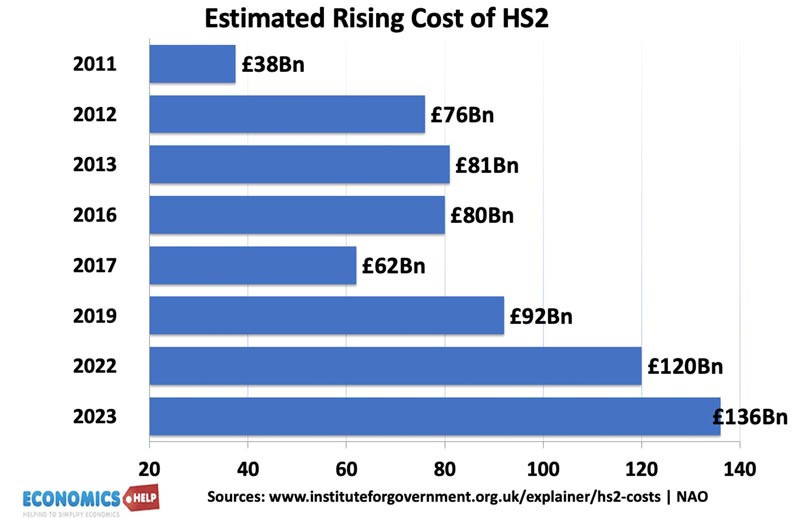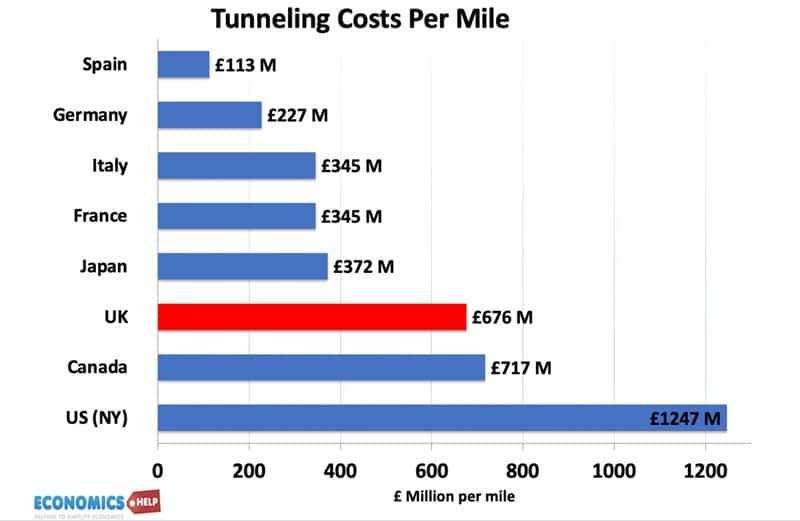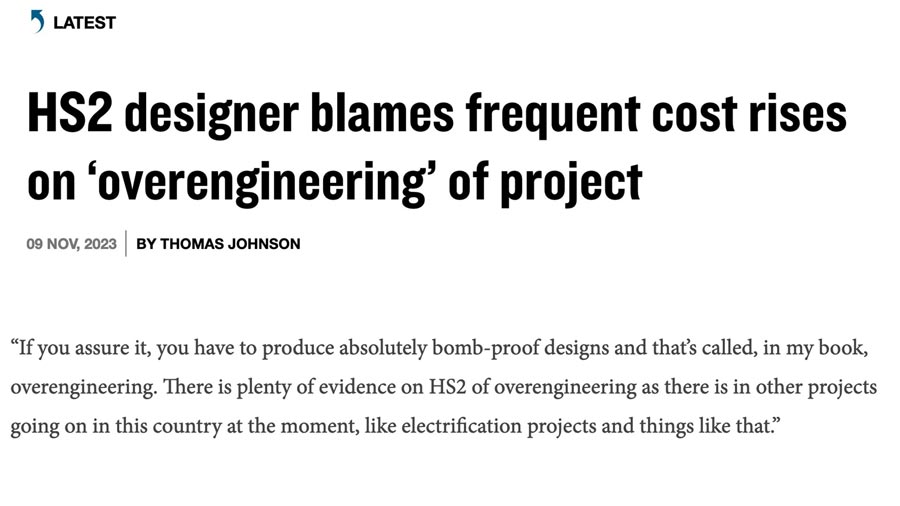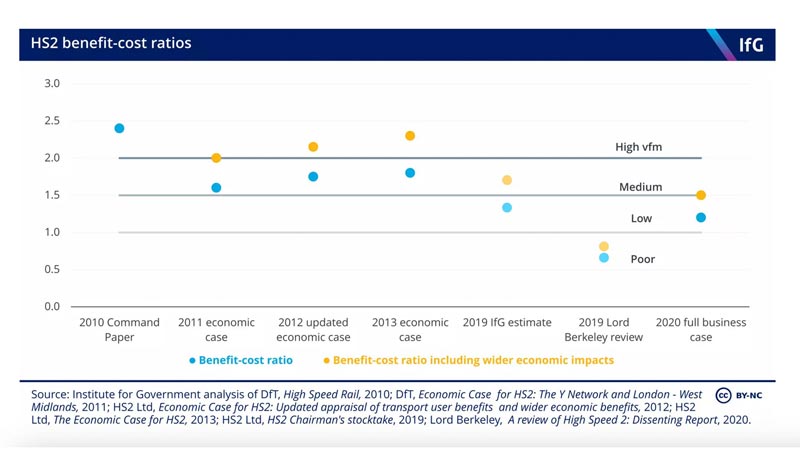After years of delays and rising costs, HS2 has been severed. The most valuable part of the route, connecting the north to London has been cancelled leaving the least valuable section a suburb of Birmingham to a suburb of London (hopefully it will make it to Euston but no guarantee). It risks being a £50 billion white elephant, a monument to poor planning and the UK’s inability to build infrastructure. It was supposed to be a project that revitalised the UK economy and UK infrastructure but has become symbolic of a failing economy. What went wrong, and more importantly what can the UK learn from other nations with much better results?
When the Channel Tunnel opened in 1994, the French had already built a high-speed connection. You flew from Paris to the channel, then slowed to a crawl on the UK’s outdated track. It took the UK another 13 years to build a high-speed counterpart. HS1 cost 5.8 billion, £51 million per mile, but despite being late and over budget, it gave significant economic benefits and importantly, 90% of businesses in Kent felt it helped the economy. The relative success of HS1 led to a dream of a high-speed network, which would increase capacity, reduce journey times and connect Britain’s major cities with London. If France, Spain, and Japan can build high-speed rail, why couldn’t the UK get in on the act?
The initial cost for HS2 was a mouth-watering £40 billion, but its bold vision was supported by both the outgoing Labour government of 2010 and the incoming Conservative coalition government. Despite wielding an axe of austerity to major departments such as education, welfare and public sector investment. George Osborne made an exception for HS2 with reports, that the long-term benefits of £100bn could easily outweigh the £40bn costs spread out over 15 years.

However, with depressing predictability for UK investment projects, it took longer to build than expected and then we started to see eye-watering surge in costs.
Estimates of costs rose from £37Bn in 2010 to £106bn 2020, and the Inflation of the past few years, means the costs could have soared toward £130bn. With costs seemingly out of control, the government cancelled the section to Leeds, then the section to Manches
Inflation – not reason to cancel infrastructure
Now, firstly, I would like to partly defend HS2, if inflation is 10%, then everything is rising 10% – not just costs but the nominal economic benefits. Inflation should not be a reason to stop infrastructure. But, even if we adjust for inflation, costs have still risen exponentially. £132bn is £89.4 billion in 2010 prices. Still more than double the initial estimate. The UK is just very bad at building infrastructure.
Tunneling costs comparison

Britain remade report that underground tunnelling costs £676million per mile in the UK, but just £113m in Spain. Madrid managed to build an entire 81 mile underground for £61m a mile, nine times cheaper per mile than the Jubilee Line extension.
France has built high speed lines at £50 million per mile. But the 140 miles from London to Birmingham will be £356 million per mile.
Why is it so expensive in the UK?
So why is it so expensive? At least part of the cost is due to the UK’s population density. Spain and France with more open countryside can build more cheaply. In the UK land is more expensive and house prices have soared since 2010 – much faster than inflation. But also, the UK’s population density and smaller size do mean that High-speed trains have less relative benefit than for bigger countries like France or the US. High speed becomes more desirable when it’s an alternative to flying. No one takes the plane from Birmingham to London, so high-speed trains are not an alternative.
1. Over-engineeered. This also brings us onto another valid criticism of HS2, it is over-engineered aiming for eye-catching speeds of 200mph, when lower speeds would save money, but only marginally increase journey times. One of the secrets of low costs in Spain is that they use standardised techniques to keep costs as low as possible. HS2 had a degree of extravagance wanting to be the best but not the best value. The former technical director of High Speed 2 Andrew McNaughton agreed HS2 was over-engineered, needless increasing costs.

2. Change of scope Another big issue behind the soaring costs is the government’s own tinkering with designs to appease local MP on the route, who just happened to be influential Conservative backbenchers. Understandably the population of the Chiltern commuter belt didn’t like the idea of disruption just so people from London could get to the north. From a local perspective, it was all cost and no benefit. So to protect the Chiltern countryside, more of the railway was diverted through long, expensive underground tunnels, and don’t forget, the UK finds tunnelling more expensive. Not only that but things like ventilation shafts had to be disguised as farm buildings – just to appease local sensibilities. But this is the problem with HS2, there has been an awful lot of a few extra million here and there – and over 15 years it’s become quite a few billion. This is the British political system in action, local lobbying without a coherent national strategy.
3. Lack of consistency. But, there is more to increased costs than a change of scope, because the UK builds infrastructure in fits and starts, it has a lack of skilled workers, and a lack of experience in building. The more you build, the better you become. You learn how to keep costs low, and then you can replicate these techniques. The UK by contrast paused HS2 – but this is deadly for pushing up costs, contractors take it as an opportunity to ask for more.
And this is the big problem of cancelling HS2, it will make it much more difficult to build infrastructure in the future. No one will have faith the project will be completed, and contractors will demand higher payments to get involved. And in a typical act of political short-termism, within days of cancelling the northern leg, Sunak starting selling off the land at a loss to make it almost impossible to revive the project in the future. He could easily have kept the land for a few years
Cost-benefit ratio

In 2020, the government’s own independent review into HS2 led by Douglas Oakervee said the beleaguered project should go ahead because the net benefits still outweighed the costs. But, importantly he said the scheme was only valuable if it connected Leeds and Manchester. The leg from Birmingham to London does not provide good value on its own. Yet, this is exactly what we have been left with – the least desirable part of the project. The net benefit-to-cost ratio has been falling since 2010, and we could end up with a project where the long-term benefits never exceeds its costs. The esteemed railway commentator Christian Woolmar, who was always sceptical of HS2 preferring less ambitious and more local projects said that the truncated version of HS2 has left us with the worst of both worlds. £50bn cost but a railway which will likely be a white elephant – especially if it never makes it to Euston, making it much more difficult to ever build infrastructure in the future.
Other reasons for cost increases
Wrong kind of land. One of the biggest cost increases was because contractors found it was the wrong kind of land. It was softer than expected and so costs rose. For British people of a certain generation, this will bring to mind the famous excuses of British Rail – when the wrong kind of leaves led to widespread train cancellations.
Expensive planning. Then there are a host of other reasons, the UK’s complex and very expensive planning system. Secondly, contractors who are bidding want to insure themselves against problems. Thirdly, it was widely known that HS2 had a bit pot of money, which encouraged firms to put in high bids – this compares to HS1 when the budget was kept secret. And then on top of this, there is the widespread report of poor management at HS2. Whilst, the UK has a shortage of skilled engineers to build things, we have no shortage of white-collar management. 44 HS2 executives were paid more than £150,000 a year. But, despite all this management, HS2 has been criticised for being too bureaucratic, with a lack of responsibility and difficulty in moving forward.
Opportunity cost
And The final point is that of opportunity cost, if we didn’t spend £50 billion on HS2, what else could we have done with the money.
Conclusion
I am a train buff, and I would like to have seen HS2 built, but even as a train fan, I am disappointed by the failure of HS2 to deliver something manageable and achievable, but it is much more than a failure of this project, it reflects the difficulty of building infrastructure in the UK. This is another reason why the UK is seeing a long-term economic decline, to find out about all the other reasons for long-term decline.
Related
Sources:
- Infrastructure too expensive
- Over-engineering on HS2
- Gov review of HS2
- HS2 costs
- Britain Remade
- HS2 national embarrassment
- 10 years of HS1 – HS1
